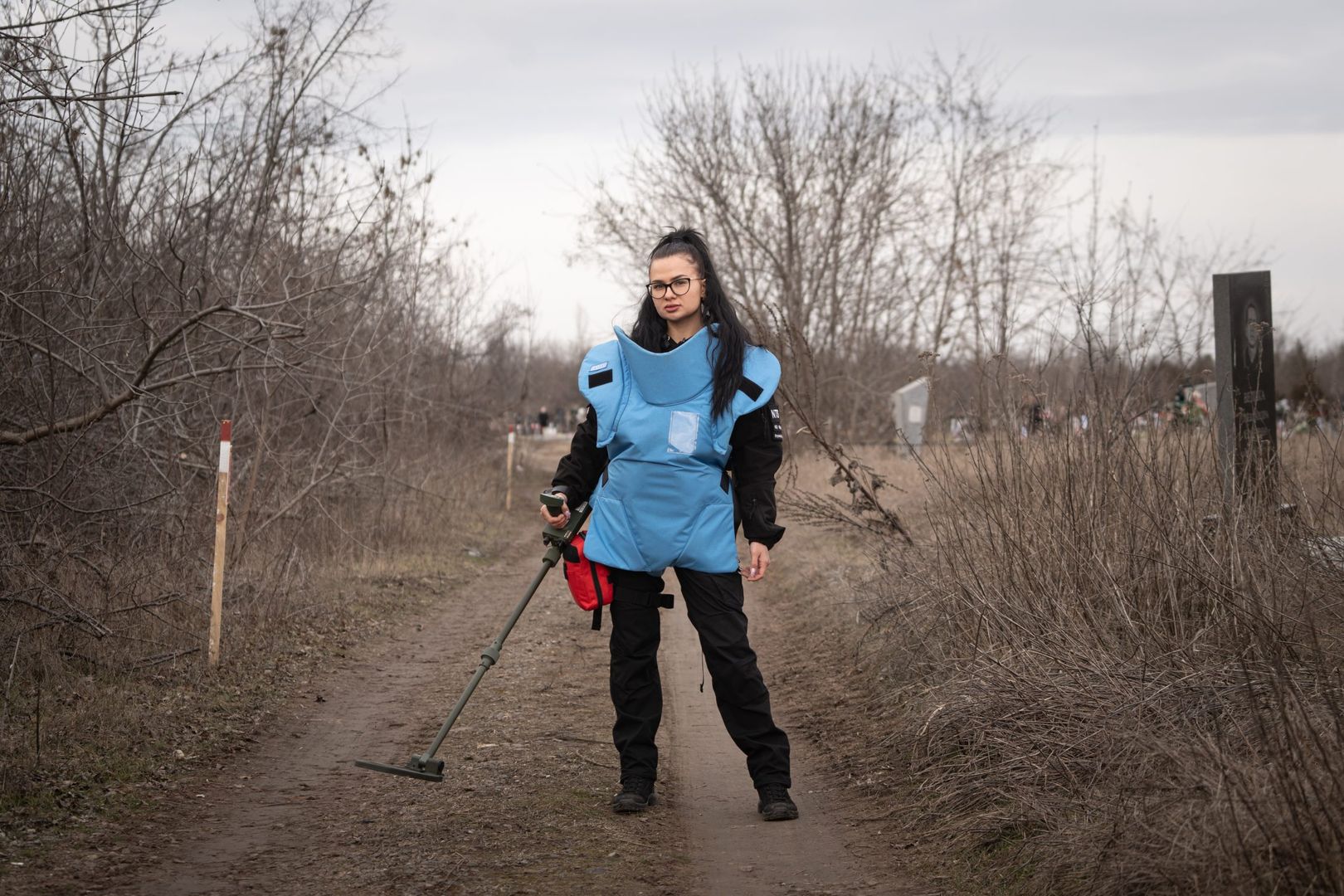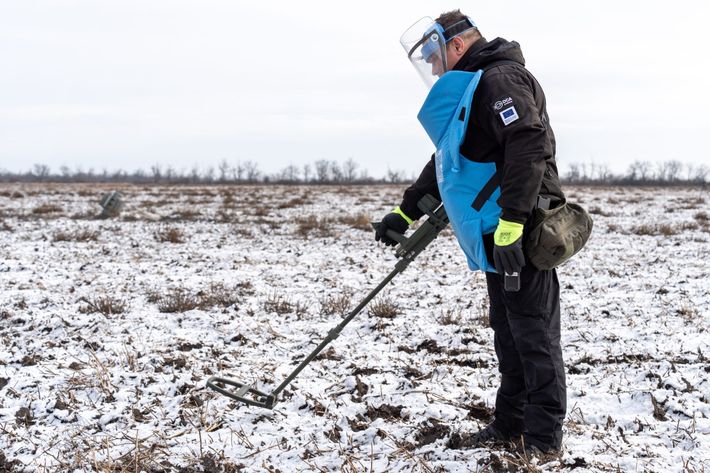Formerly employed in a bank for five years, Diana changed her life and focused on her passion of making a difference in her hometown Mykolaiv. Since October 2023, Diana has been working as a deminer for DCA, specializing in non-technical survey (NTS), after undergoing a comprehensive training programme. Her team focuses on investigating areas suspected of containing unexploded ordnance, ranging from mines and grenades to cluster bombs. A job many might consider dangerous. Diana, however, believes that myth should be debunked.
“I’m not afraid. On the contrary, I really enjoy my work. I am confident in myself and my team. We were all thoroughly trained in safety rules, which is paramount. So no, I’m not afraid. I find this work interesting; it is very satisfying to do,” Diana confidently expresses, dispelling concerns about the dangers associated with her occupation.
Diana’s decision to join the demining efforts has been met with scepticism, particularly from her family, who questioned whether such a role should be reserved for men. However, Diana staunchly disagrees, asserting that in challenging times like these, everyone, irrespective of gender, should contribute to the well-being of their community.
I believe that in these challenging times for our country, anyone who wants to and has the right enthusiasm for it should work, regardless of whether they are male or female. The main thing is to perform your job wellDiana, deminer

Helping the people of Mykolaiv
Diana’s dedication goes beyond breaking gender norms; it is deeply rooted in her desire to assist ordinary people affected by the war. Her work involves identifying potential dangers and providing crucial information to Ukrainian authorities responsible for the safe removal or disposal of explosive objects.
“We help ordinary people with demining, which is necessitated by the war. I want to be useful in participating in this important work,” Diana states, highlighting the significance of her contribution to the safety of her community.
Diana’s journey as a deminer is a testament to the resilience and capability of women in non-traditional roles. Her transition from the corporate world to the challenging field of demining exemplifies the transformative impact of empowerment and the importance of breaking barriers for the greater good.

In Diana’s words, “The work itself is not scary. When I worked in a bank, it was very stressful, but I really like working for DCA. It’s like night and day compared to working in the bank, which is why I love my current job. It makes me happy. I will continue to work in this field as long as there is a humanitarian organization in our country, where I can be of help.”
As Diana continues to play an integral role in the demining efforts, she serves as an inspiration for women across Mykolaiv, proving that dedication, skill, and a commitment to community well-being can empower individuals to thrive in any field, regardless of societal expectations.
What is Humanitarian Mine Action?

Humanitarian Mine Action (HMA) refers to the coordinated efforts aimed at mitigating the impact of landmines, unexploded ordnance (UXO), and other explosive remnants of war (ERW) on communities affected by conflict. The primary objectives of HMA include clearing contaminated areas, providing risk education, and supporting victims with rehabilitation and assistance.
Why is Humanitarian Mine Action important?
Protecting Lives: HMA plays a crucial role in saving lives by clearing hazardous areas and preventing accidental injuries and fatalities caused by explosive remnants.
Facilitating Reconstruction: Clearing land from explosive remnants allows for the safe return of displaced populations, enabling post-conflict reconstruction and development.
Empowering Communities: HMA empowers affected communities by providing them with the knowledge and tools to navigate and avoid the risks associated with landmines and explosive remnants.
Contributing to Sustainable Peace: By removing the physical threat of landmines, HMA contributes to the creation of stable and secure environments, fostering the conditions necessary for long-term peace and development.
Strengthening Food Security: Humanitarian demining strengthens food security in local communities by enabling safe access to agricultural land, facilitating farming activities, and reducing the risk of injury or death, thus promoting sustainable food production and distribution.


